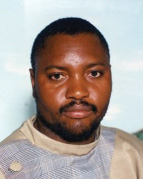
IN the period leading to the July 31 2013 general elections, President Robert Mugabe’s Zanu PF was impregnated with the zeal to indigenise the economy.
For some reason, the plot seems to have been lost as Mugabe and Zanu PF are working overtime to find the best way to reverse their election promises.
According to Mugabe, former Indegenisation minister Saviour Kasukuwere and company, the indigenisation drive was going to be achieved by way of forcibly acquiring majority shares in foreign-owned businesses.
This obviously created uncertainty in the markets. Inevitably, potential foreign investors tagged Zimbabwe as an unsafe business option. Some foreign-owned companies reacted to the indigenisation war cry by actively divesting from the country.
The desperation to win the July 2013 elections should be held responsible for the madness. The Zanu PF campaign machine failed to indicate even in small print that the insinuations on wholesale indigenisation were meant to excite gullible rural voters.
Zanu PF should have hinted that the campaign gimmick was to trick voters with the falsehood that they would become company executives in the newly acquired businesses.
The people bought into the cheap shot despite compelling historical evidence where Zanu PF had duped them. Having said so, some country sages, town charlatans and village bumpkins have witnessed Zanu PF delivering the promise by making farmers out of a chosen few during the agrarian revolution.
Zanu PF sang loud and long on how they had made master farmers out of peasants overnight. They ignored the fact that one does not become a master farmer by virtue of owning swathes of land, but through productivity.
- Chamisa under fire over US$120K donation
- Mavhunga puts DeMbare into Chibuku quarterfinals
- Pension funds bet on Cabora Bassa oilfields
- Councils defy govt fire tender directive
Keep Reading
The over-sold cry “the land is the economy and the economy is the land” failed to live to the great expectations of the poor. The landless became land owners yet poverty remained entrenched in their midst. Zanu PF are registered masters of deception.
This deception was used during the general elections of 2013. Mugabe hyped up the emotions of the poor by promising to deliver unto them the means of production through indigenisation.
There are signs that the proposed radical solution to the ownership complex is misfiring. Foreign owners are grudgingly heeding the threats by closing shop. Only a few die-hard elements wish to ignore the rabid rants as they want to continue doing business as usual.
Before the ink on the indigenisation draft has dried up, Mugabe is now looking south, north, east, west and even towards the heavens for economic salvation. He let slip his desperation during the official opening of the 55th session of the Zimbabwe International Trade Fair.
Hearing Mugabe literally beg for foreign investors caught many by surprise. Now Zimbabwe was being billed as a safe destination for direct investment.
His passionate and almost desperate plea for foreign investment was a huge contrast to the election-inspired threats to expropriate foreign-owned businesses.
Credit to Mugabe and Zanu PF for belatedly realising that the world can thrive without Zimbabwe and yet Zimbabwe cannot survive without the world. After ostracising himself from two-thirds of the world, Mugabe is slowly seeing the light through a compromised vision.
His trademark rants chiding the British now require some positive spin. So the “Blair, keep your England and let me keep my Zimbabwe” chant could soon become “Cameron release your cash and let me keep it in my Zimbabwe”.
Surely Zimbabwe has gone to the dogs. A tuck shop somewhere in rural Madlambudzi or in Chituripasi is the only fitting analogy of the way Zimbabwe’s economic affairs are being handled.
A rural tuck shop operates without any established control over budgetary issues. The owner can dip his fingers into the till anytime he wants to. There is no proper accounting for expenditure and income.
The owner’s mood affects the operations of the tuck shop. When the owner is in a good mood, the shop may remain open for business for much longer and customers get to be pleasantly surprised with discounts.
When the owner is in a foul mood, all hell breaks loose with customers being reminded of their luck to have a shop in the middle of nowhere. Shoppers endure unjustified price hikes reflecting the owner’s bad mood.
As if the price hikes are not enough, the shopkeeper retains a privilege to arbitrarily deny some customers access into the shop.
The only underpinning rationale in denying access to shop for some people is abuse of power by the owner.
The tuck shop owner has a deeply established belief that he who owns has the right to brag and also to drag others along the path of destruction.
Indeed the rural tuck shop mentality pervades Mugabe’s Zanu PF. Mugabe and company spread the gospel of a Zimbabwe that is a tiny tuck shop. The ruling party lacks financial accountability.
The limited financial resources that are generated by this limping tuck shop are used to sponsor the extravagancy of the privileged few. They fly away to exotic destinations and shop with gusto and impunity as if the end was nigh.
Mugabe may scream that Zimbabwe is his tuck shop for as loud as he wants. He should not, however, forget that Zimbabwe is for the people.
He also has to be reminded that the tuck shop needs new management, if not a takeover by a huge supermarket chain.
Masola waDabudabu is a social commentator










